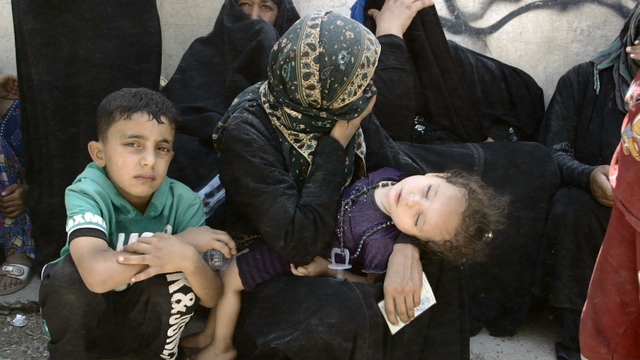Mosul's Aftermath
Mosul's civilians grapple with the challenges of repopulating their ruined city
 Over 700,000 people were displaced during the nine-month battle to recapture Mosul from ISIS. Many fled to the 20 refugees camps outside the decimated city. Now these survivors have nowhere to return to but a ruined city.
Over 700,000 people were displaced during the nine-month battle to recapture Mosul from ISIS. Many fled to the 20 refugees camps outside the decimated city. Now these survivors have nowhere to return to but a ruined city.
"Newborn babies were dying from hunger", says mother of three Shayma Ali, whose family survived the siege of Mosul by eating birdseed and drinking rainwater. "When we took the children to the ISIS hospital to get them some food, they told us, 'If they die, it's for the sake of God'. Those were very bad days." With the city destroyed by the shelling and warfare that resulted in ISIS's defeat, Ali and hundreds of thousands like her remain in Iraqi and Kurdish run refugee camps. With support from the U. N. and aid agencies, whole communities survive in tents where temperatures can reach 50°C. "What keeps me awake sometimes at night is the possibility that we will witness a lost generation", says Maulid Warfa, Unicef's chief officer in the region. "We see children coming from the areas that are now retaken. Some of them are wounded, some of them are dehydrated, some of them are malnourished, some of them are unaccompanied. It's not one or the other; it's all of them." With scarce provisions and nowhere to return to, the survivors face a new crisis. "Our destiny is unknown", says Ali.
FULL SYNOPSIS

